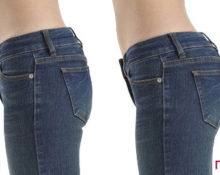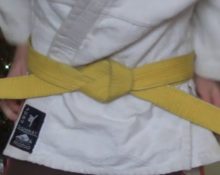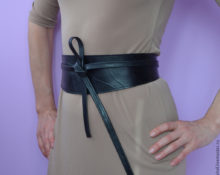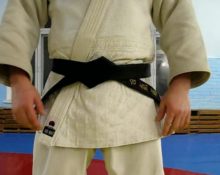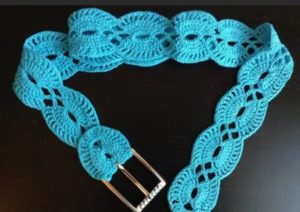 A belt becomes an indispensable accessory for any item. Knitted belts can complement more than just knitted items. With them you will get a very beautiful look, and the strap can be made for jeans or a summer blouse, a beautiful plain dress. It is important to choose the right colors and additional components of the belt to make it look presentable. A detailed description of how to make crocheted unusual belt patterns is later in this article.
A belt becomes an indispensable accessory for any item. Knitted belts can complement more than just knitted items. With them you will get a very beautiful look, and the strap can be made for jeans or a summer blouse, a beautiful plain dress. It is important to choose the right colors and additional components of the belt to make it look presentable. A detailed description of how to make crocheted unusual belt patterns is later in this article.
Selection of yarn and hook
Very often used as the main yarn for a belt. iris threads. But they're better suited for summer and openwork options.
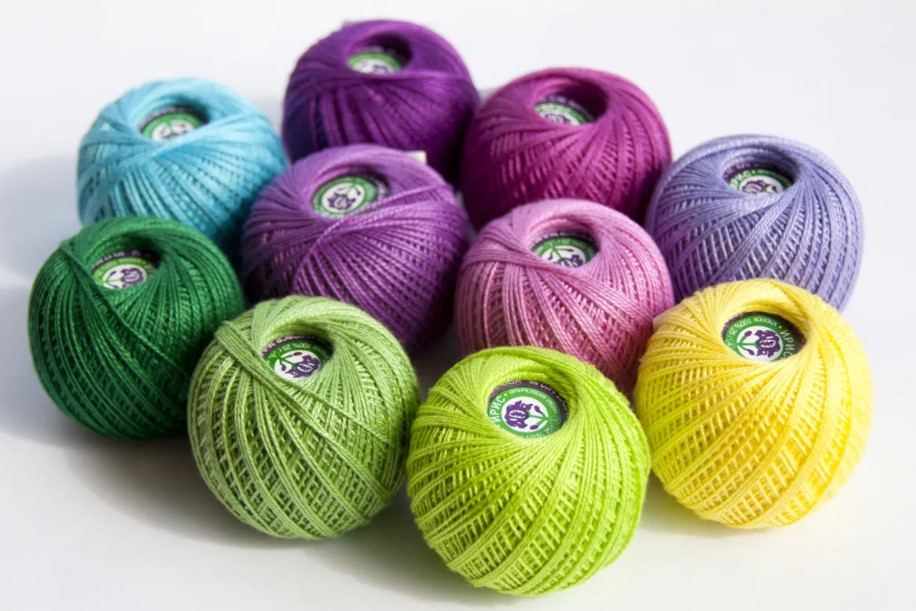
For those, If you want to get a very durable belt, it is better to use a thicker blade. Ideally, everything should be made of pure cotton, since it will not heat up, and such a belt can be used at any time of the year, and will not cause allergic reactions.
In addition to yarn beads are often used, there is a very interesting technique of crocheting with beads. This allows beads or beads to be installed in the threads within the fabric.This work looks very nice. But simple embroidery over the canvas also looks great. The hook is selected after the yarn, and it simply must fit the size of the thread.
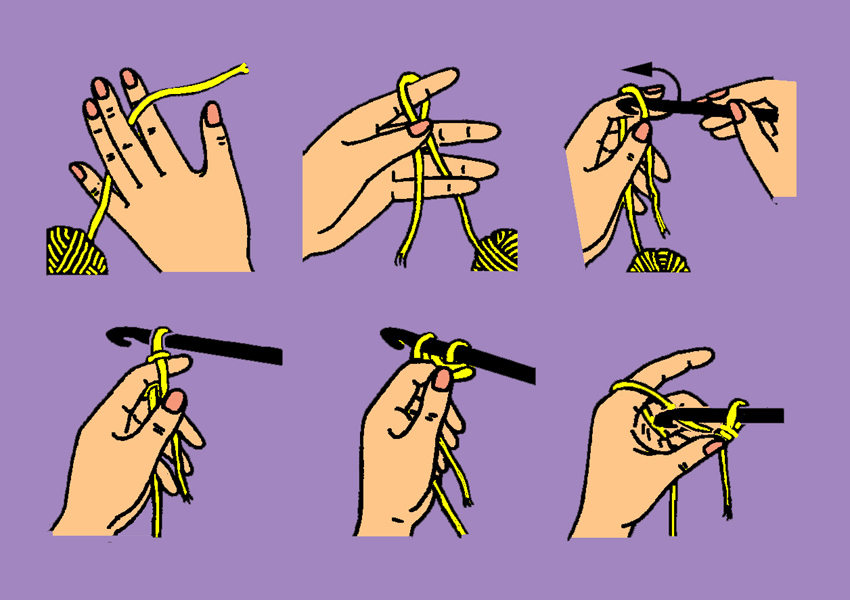
Important! Craftsmen very often use hooks with a flat center for fingers; they are easier to hold in your hand and your hands do not get tired from long-term work.
Belt models
Below are some chic strap models that can be made using a crochet hook.
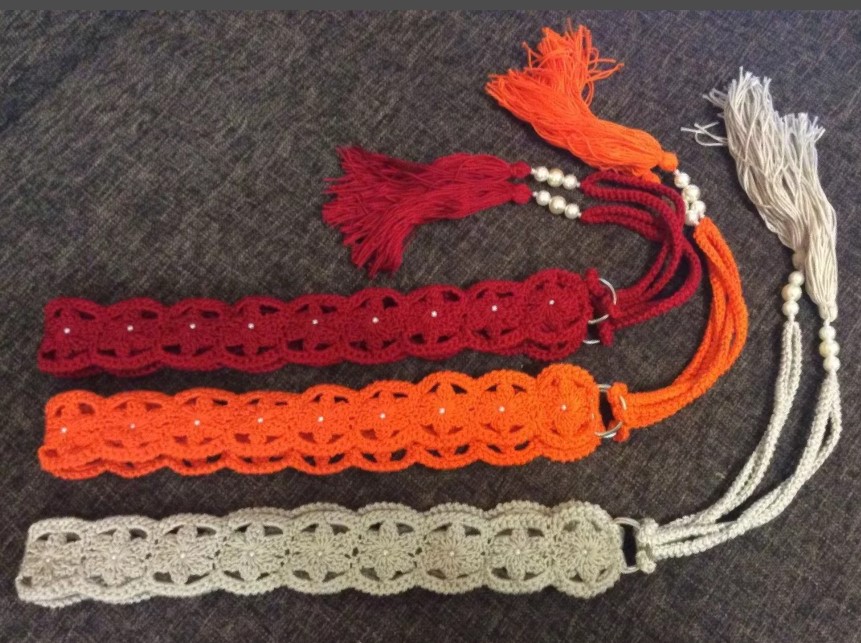
They are so attractive that many will start knitting themselves to give beauty to themselves and their loved ones.
Openwork belt for a dress
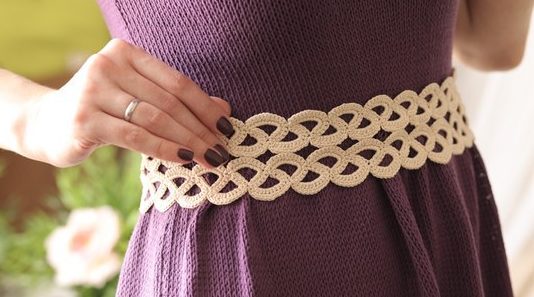 The original belt with weaves is no more complicated than a regular chain; you just need to make the appropriate connections when knitting subsequent rows.
The original belt with weaves is no more complicated than a regular chain; you just need to make the appropriate connections when knitting subsequent rows.
To work you will need:
- white iris;
- hook for iris thread.
Measurements
Measure your waist circumference - this will be the measurement for the length of the product.
Sample
Make several combinations of the main pattern, and determine from the sample how many such elements are needed for the whole product. The width can also be changed. In this model, two rapports are used upward, but you can do three or even 4, so the belt will only be wider.
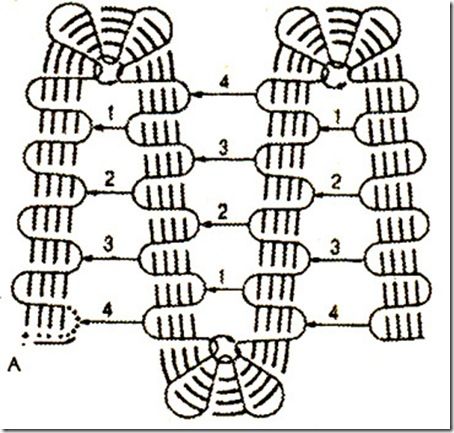 The basis
The basis
Cast on the air chain, and you can begin making the main pattern of the fabric. The curves will be the same. Knit the first strip along the length of the waist circumference measurement, and then several repeats in height.
This product is one piece and does not require a fastener. The pattern stretches well and therefore will be very fitted; if necessary, you can immediately subtract 2 cm from your waist measurement to make it fit tighter at the waist.
For baby dress
Very cute model for a children's dress. You can make it for a fashionista in a different color, for example, pink or lilac.
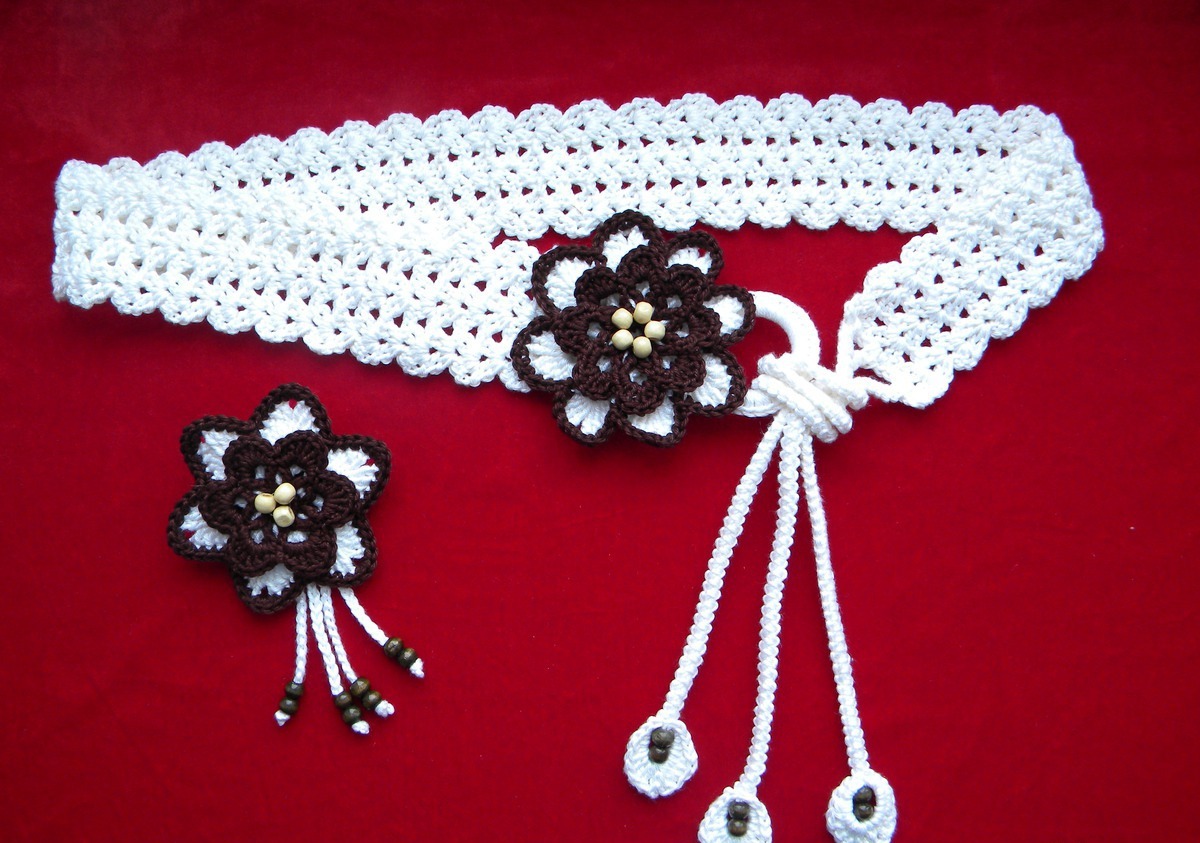
To work you will need:
- iris yarn in two shades;
- hook for iris thickness;
- wooden beads.
Measurements
Measure the child's waist circumference and use the measurement as the basis of the fabric.
Sample
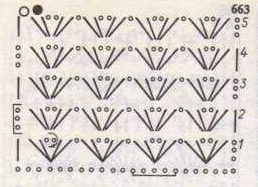 Knit a small section of the fabric according to the pattern and measure the knitting density for it. Then determine how many rows are needed to complete the whole canvas.
Knit a small section of the fabric according to the pattern and measure the knitting density for it. Then determine how many rows are needed to complete the whole canvas.
The basis
For the base, take a pattern for the model. Knit the desired size and set the product aside.
Ring
For the ring, cast on 20 chain stitches and knit about 50 single crochets into the ring. This will create an even and tight ring.
Flower
Make two flower parts, the top one less by one row. Next, connect the motifs and sew wooden beads in the center. Additionally, according to the pattern of the last petals, make three ovals, and also sew beads to them. Then knit two strands of rope for a tie with a length of 15 cm. Sew them on one edge of the product.
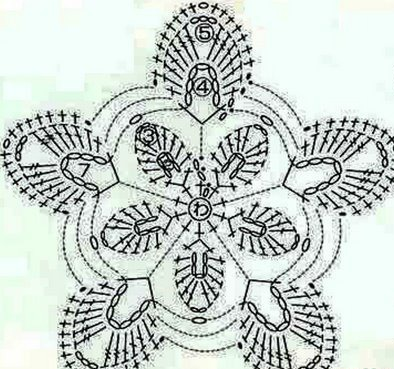 Assembly
Assembly
Sew a ring and a flower from the second edge.
You can try on a beautiful new item.
For jeans (trousers)
A very tight belt for jeans made from clothesline.
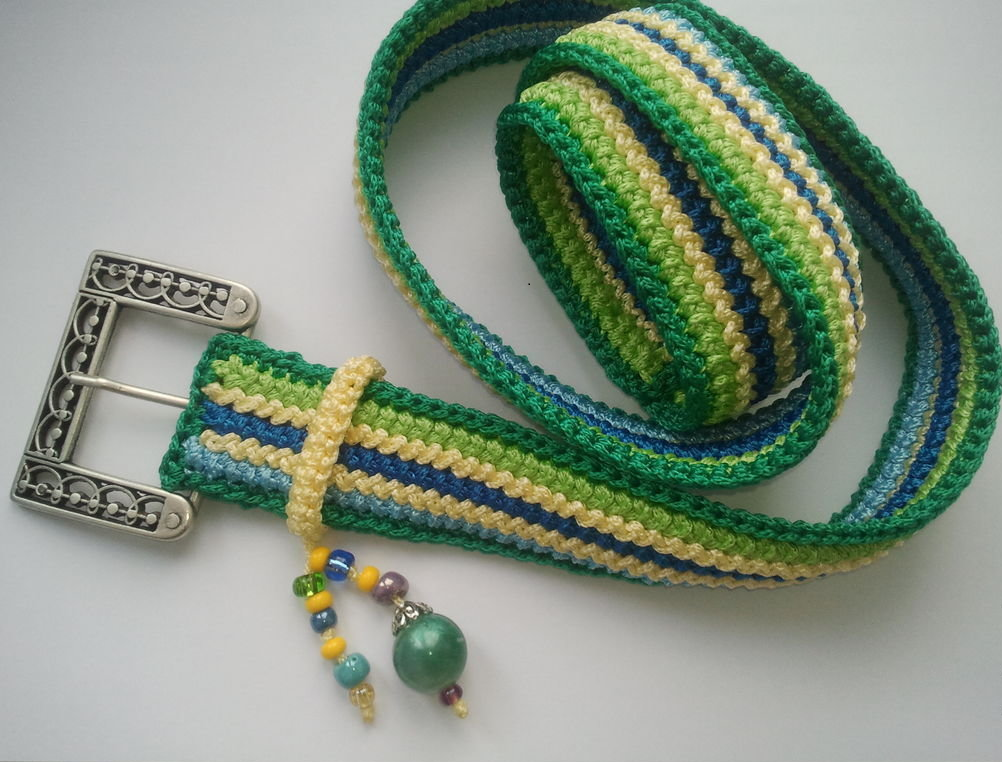
To work you will need:
- clothesline of different colors;
- hook number 5;
- plaque.
Measurements
Measure your waist circumference and add 1/3 of your waist circumference.
Sample
Using one thread, knit a small square according to the single crochet pattern, and calculate the density of the knitting. Then determine how many sets of loops are required for the length of the product.
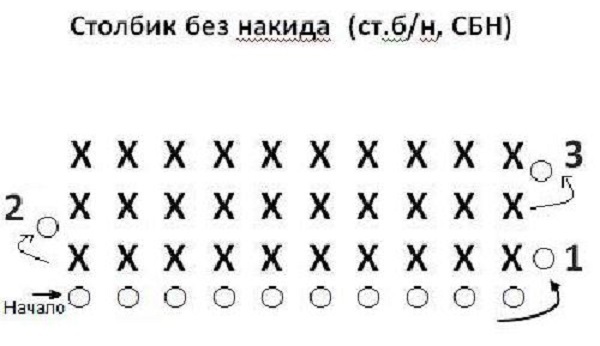 The basis
The basis
Knit the fabric according to the pattern in different colors for the desired length. Make the border in a contrasting color with simple single crochet stitches, knitting 2 stitches in the corners to create a neat bend of the thread.
Assembly
To assemble, you just need to sew on a plaque and, if desired, embroider holes in the fabric to make it convenient to put on the belt.
For a light knitted sweater
A very beautiful and openwork option will perfectly complement a knitted dress. Suitable for openwork models and denser patterns.
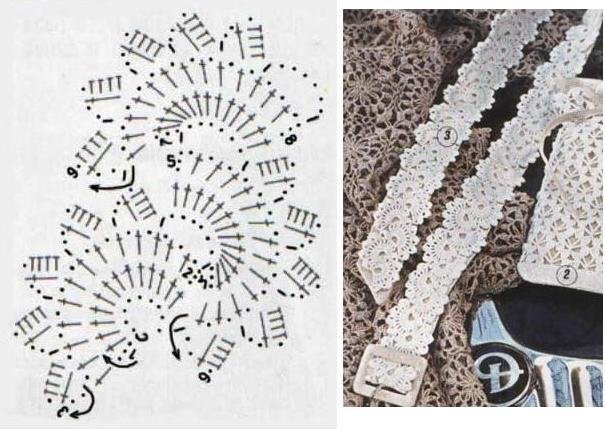
To work you will need:
- iris yarn;
- hook according to the thickness of the thread;
- thick cotton fabric;
- plaque.
Measurements
Measure your waist circumference and add a third of this measurement.
Sample
Make a small sample of the lace pattern. Compare the measurements and calculate how many repeats are required for the whole product.
The basis
Knit according to the prepared measurements and the provided fabric pattern.
Fabric base
Sew a base for the belt from thick cotton according to the size of the lace strip.
Assembly
Sew lace and cotton. Sew on the plaque and the product is ready, you can iron it through gauze and try it on.
Wide belt
A very fashionable belt that will look good on a plain transparent blouse or translucent dress. Well focuses attention on a thin waist.
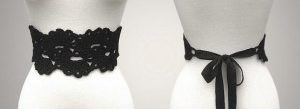
To work you will need:
- black iris;
- iris hook;
- matte satin ribbon;
- two matte black rings.
Measurements
Measure your waist circumference and subtract 15 cm for the tie.
Sample
Make several repeats according to the beautiful openwork pattern provided and calculate the knitting density for them. Next, calculate how much you need to knit for the whole fabric.
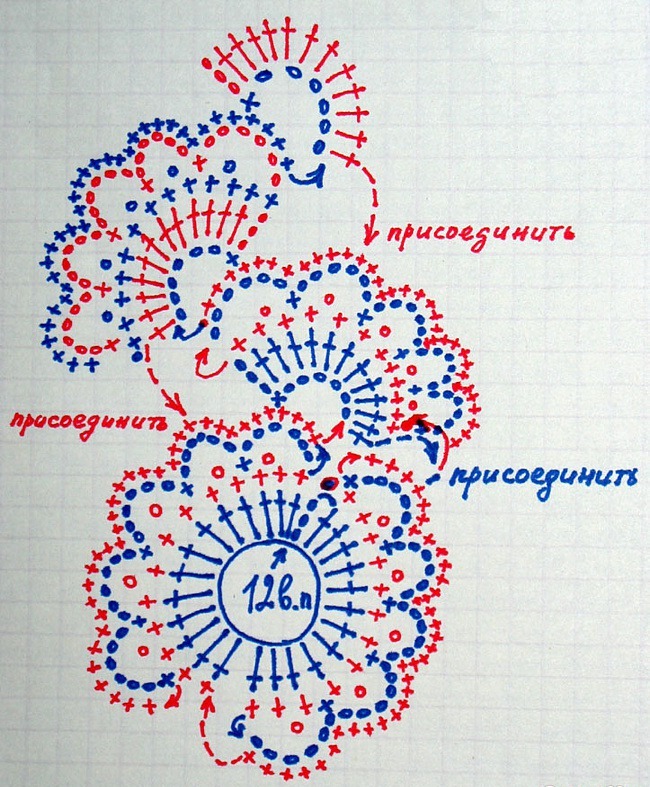 The basis
The basis
Knit the required number of repeats according to the pattern and put the product aside for now.
Assembly
Sew rings along the edges and insert a satin ribbon. You can try it on, just tie a beautiful bow with a ribbon, and the belt will fit well to the waistline.
Thin belt
A very stylish and simply cute belt with charming flowers can be worn with a skirt.
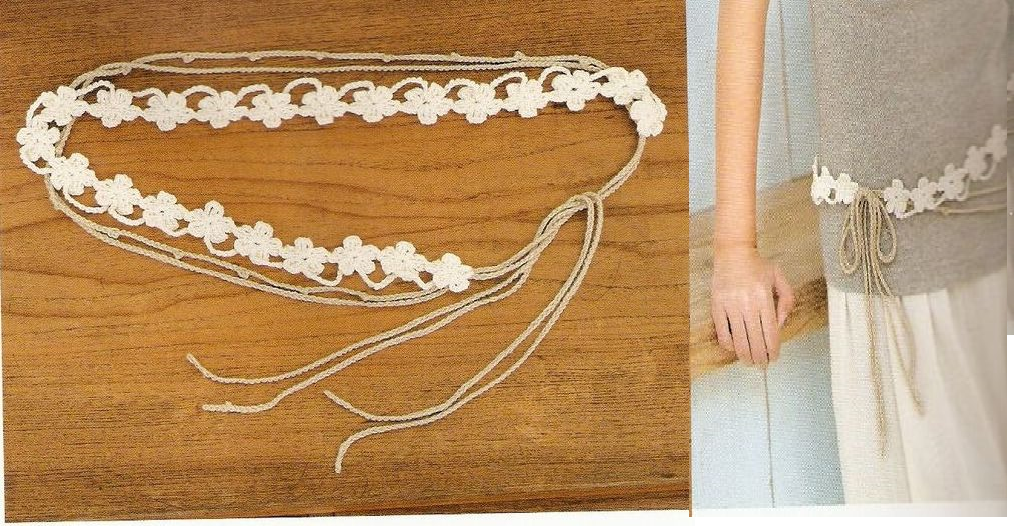
To work you will need:
- white iris;
- flesh-colored iris;
- iris hook.
Measurements
Measure your waist circumference and take it as the main measurement for your belt.
 Sample
Sample
Knit one flower and measure its width. Make a rough work plan and how many flowers you will need for the base.
The basis
Knit flowers to the desired length.
Ties
From flesh-colored yarn, knit several threads with air loops and attach to the base with flowers.
Belt-sash
The belt with rings and ties looks very beautiful on low-waist jeans, and over a sundress or skirt.
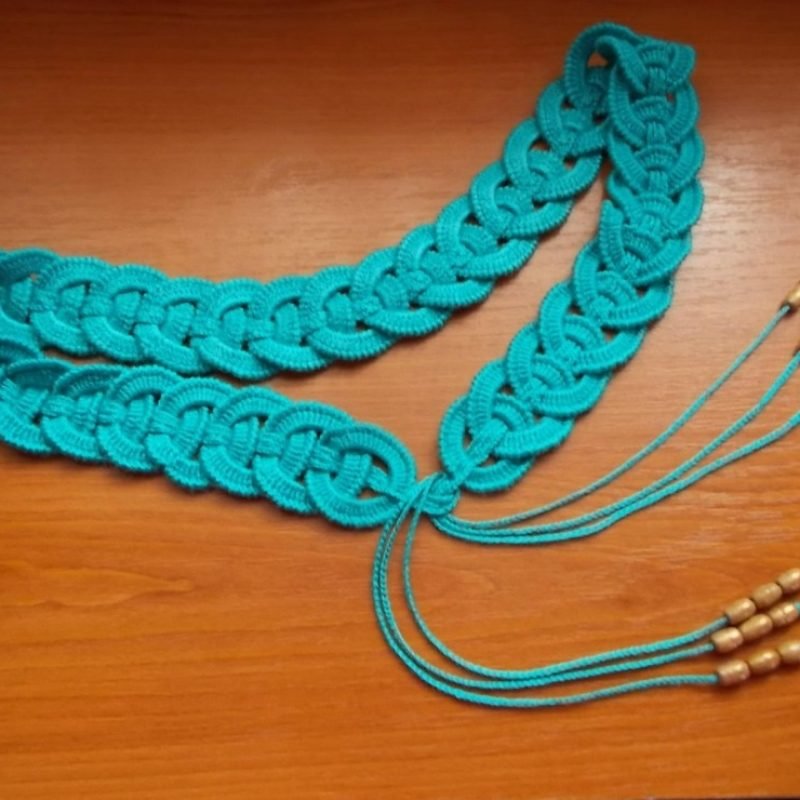
To work you will need:
- iris yarn;
- iris hook;
- elongated wooden beads.
Measurements
Measure your waist circumference.
Sample
Tie one ring and measure its length, count how many rings are needed, taking into account that the connection will have a slight overlap.
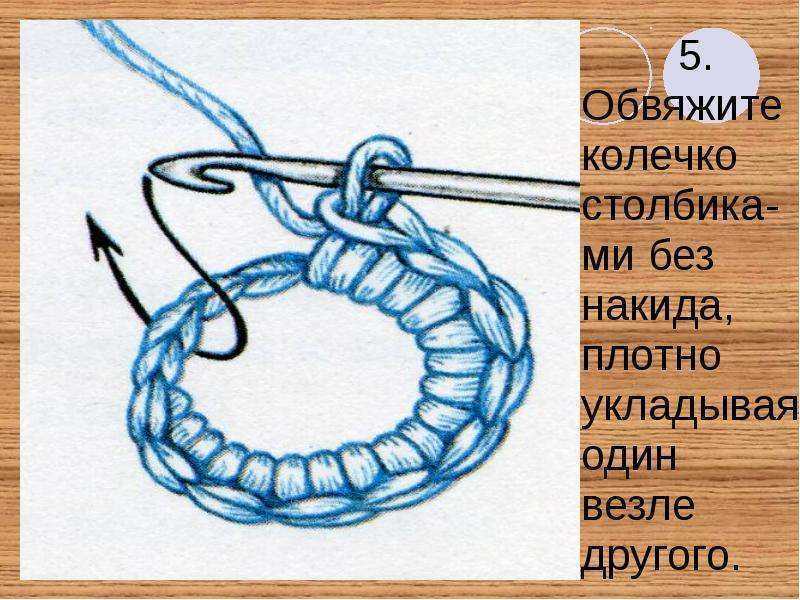 Rings
Rings
Complete the required number of rings.
Assembly
Knit several threads from air loops and overlap the rings. Tie the remaining ends into braids and add beads.
With buckles
A belt with plaques always looks very stylish. Suitable for almost any trousers and jeans. You can also create an image with a dress and a skirt.
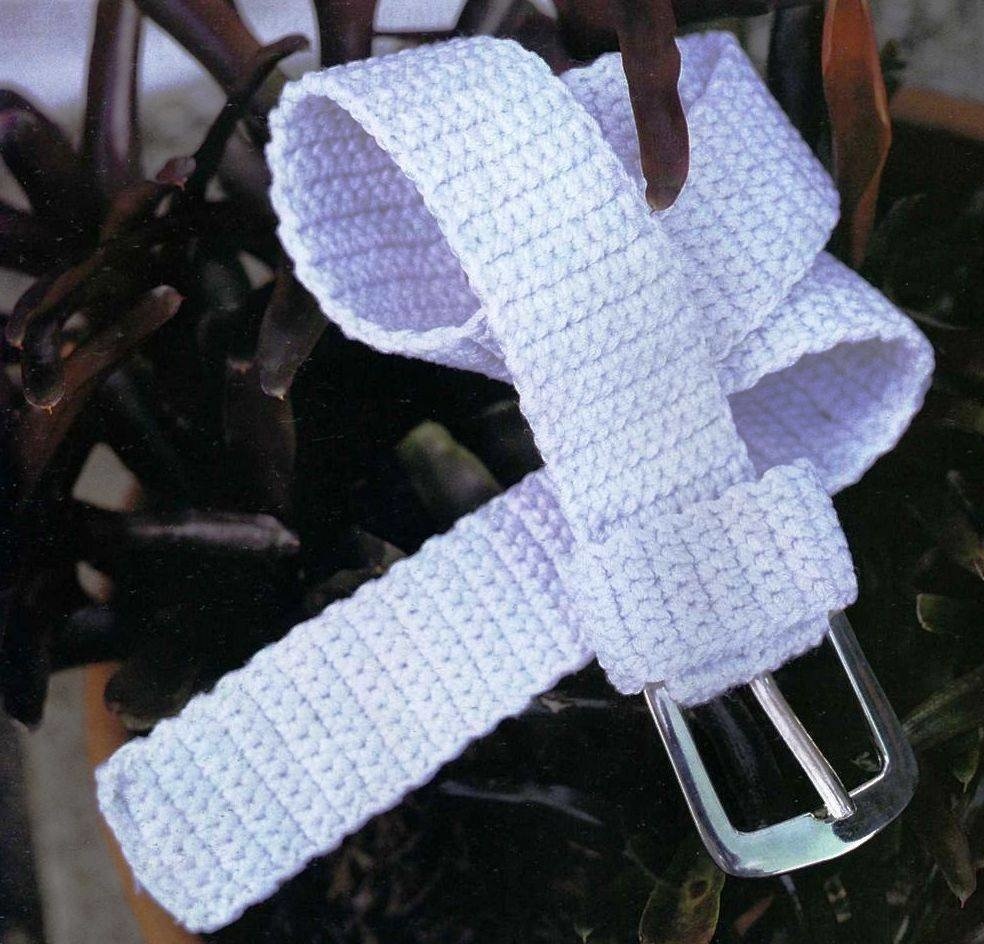
For work use:
- white iris;
- iris hook;
- plaque.
Measurements
Measure your waist circumference and add a third of the measurement.
Sample
Make a small square and count the density of the knitting to it.
The basis
Knit the required number of rows for the belt according to the pattern. You can tie it in two threads, so the belt will be thicker and stronger.
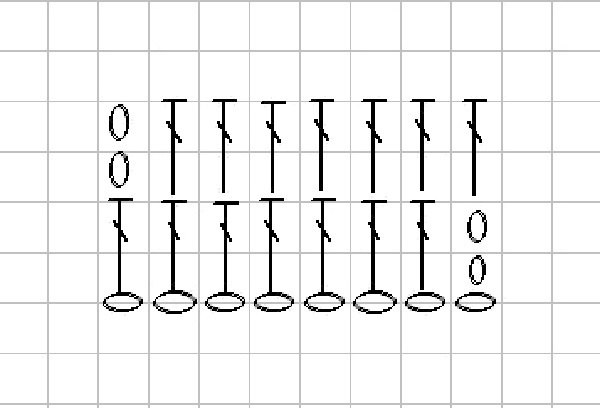
Double crochets
Clasp
For the fastener, make a small strip according to a similar pattern.
The beginning
It is better to tie the plaque itself tightly with iris thread.
Assembly
Sew on the plaque and clasp.
These interesting, fashionable and stylish patterns can be made using a regular crochet hook for different outfits.
Schemes for belts
Even more patterns can be found in the diagrams.
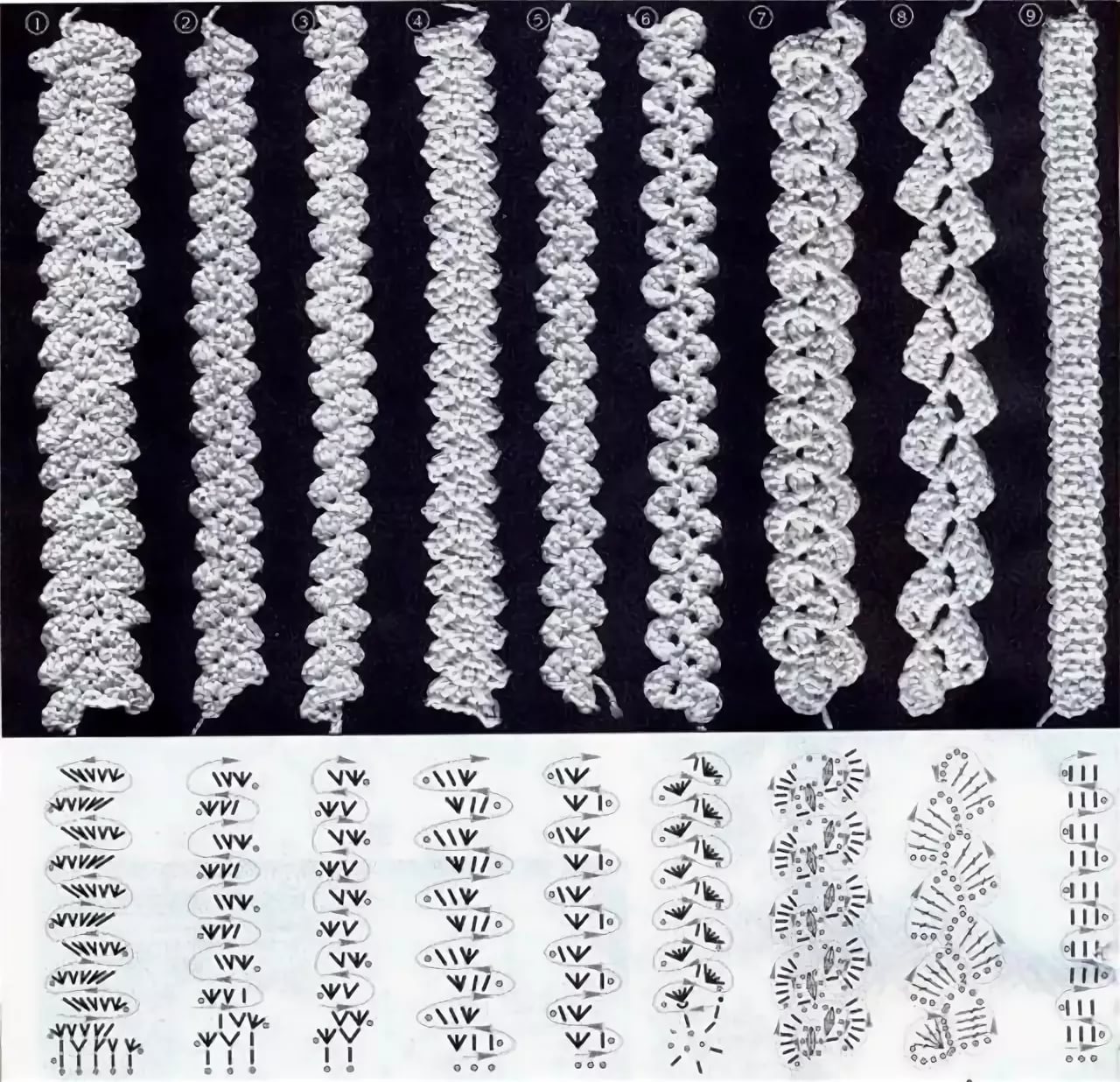
All the masters have great desire and creative inspiration!


 1
1
